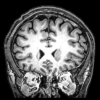This is a thread for people who experience schizophrenic symptoms whether having actually been diagnosed schizophrenic or not, and whether having been given a completely different diagnosis (e.g. autism) or not.
Wouldn't it be nice if we could share what has worked for our symptoms in order that we may be helped by others and so too help others? It's a win-win!
Obviously, the point is not to talk about the drugs already prescribed by psychiatrists but about nootropics and other non-psychiatric drugs that can be bought off-label, are experimental, etc.
According to Wikipedia, symptoms of schizophrenia are the following:
(Positive - symptoms that add)
1. Hallucinations (tactile, auditory, visual, olfactory, gustatory).
2. Delusions (false beliefs that are fixed and not subject to reasoning).
3. Paranoia (feeling of persecution, being watched, etc.).
4. Bizarre behaviors.
5. Disordered thoughts and/or speech (disorganized thoughts, word salads, thought blocking)
6. Movement disorders (agitated movements or no movements at all).
(Negative/cognitive - symptoms that take away)
7. Flat affect (lack of facial expressions, face appears flat, monotone voice).
8. Lack of ability to experience pleasure.
9. Lack of ability to experience any emotions at all.
10. Lack of ability to plan and/or fulfill plans.
11. Lack of communication (subject uses very few words or none at all).
12. Poor executive functioning (ability to understand and use information in decision-making).
13. reduced focus or attention span.
14. Poor working memory (using information after learning it).
15. Sudden unexplainable mood changes (i.e. agitation, happiness, etc., not to be confused with bipolar disorder).
If there are any mistakes in the original post (i.e. this) then do mention them and I will correct them thereafter.
Edited by YosefANaumovich, 29 April 2015 - 10:53 AM.


























































